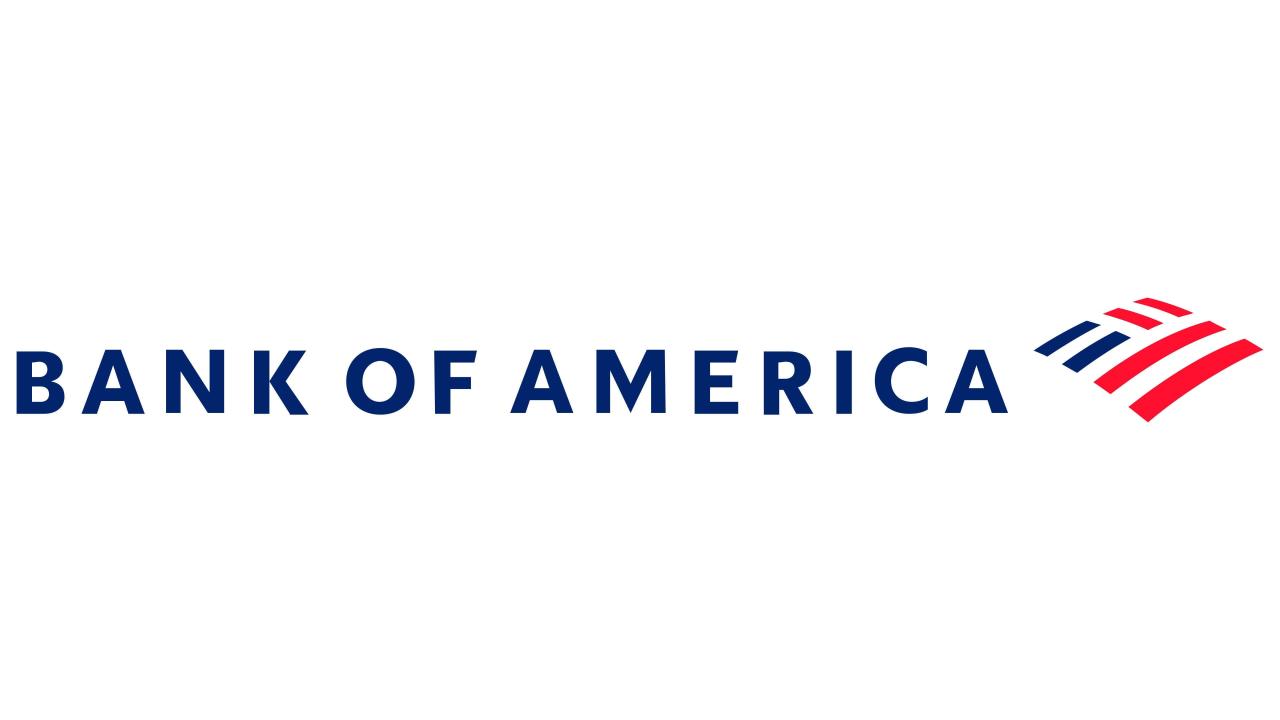The banker, a figure often associated with wealth and financial expertise, plays a crucial role in the intricate tapestry of the global economy. From facilitating transactions to driving economic growth, bankers are the architects of our financial systems, navigating complex markets and shaping the lives of individuals, businesses, and governments alike.
This exploration delves into the multifaceted world of banking, uncovering the responsibilities, skills, and ethical considerations that define this vital profession. We’ll examine the banker’s impact on economic stability, the importance of client relationships, and the evolving landscape of the industry as technology continues to reshape the financial landscape.
The Banker as a Professional
The banking industry is a vital part of the global economy, and bankers play a crucial role in facilitating financial transactions and supporting economic growth. From managing personal accounts to advising corporations on complex financial strategies, bankers are entrusted with a wide range of responsibilities.
Core Responsibilities of a Banker
Bankers are responsible for various tasks, depending on their specific role and the financial institution they work for. Here are some common responsibilities:
- Customer Service:Bankers interact directly with clients, providing guidance on financial products and services, answering questions, and resolving issues.
- Financial Transactions:They handle deposits, withdrawals, loan applications, and other financial transactions, ensuring accuracy and compliance with regulations.
- Account Management:Bankers maintain and monitor customer accounts, ensuring accuracy and security. They also analyze account activity to identify potential risks or opportunities.
- Investment and Lending:Bankers advise clients on investment options, evaluate loan applications, and manage loan portfolios.
- Risk Management:Bankers assess and manage financial risks, such as credit risk, market risk, and operational risk, to protect the institution’s assets.
- Compliance:They ensure that all banking operations comply with relevant laws, regulations, and ethical standards.
Essential Skills and Qualifications
To succeed in the banking industry, individuals need a combination of technical skills and soft skills. Here are some key qualifications:
- Education:A bachelor’s degree in finance, economics, accounting, or a related field is typically required. Advanced degrees, such as an MBA or a Master’s in Finance, can enhance career prospects.
- Financial Knowledge:A strong understanding of financial concepts, including accounting, investments, and risk management, is essential.
- Analytical Skills:Bankers must be able to analyze financial data, identify trends, and make sound decisions based on their findings.
- Communication Skills:Effective communication is crucial for building relationships with clients, explaining complex financial concepts, and working collaboratively with colleagues.
- Customer Service Skills:Bankers need to be empathetic, patient, and able to provide excellent customer service to maintain client satisfaction.
- Ethical Conduct:Integrity and ethical behavior are paramount in the banking industry, as bankers are entrusted with sensitive financial information and client funds.
Types of Banking Roles
The banking industry offers a wide range of roles, each with its own specific duties and responsibilities. Here are some examples:
- Personal Banker:Provides financial advice and services to individual clients, including account management, loans, and investments.
- Commercial Banker:Works with businesses, providing financial services such as loans, lines of credit, and cash management solutions.
- Investment Banker:Advises companies on mergers and acquisitions, capital raising, and other financial transactions.
- Financial Analyst:Conducts research and analysis of financial data to support investment decisions, risk management, and other banking activities.
- Loan Officer:Evaluates loan applications, assesses creditworthiness, and manages loan portfolios.
- Branch Manager:Oversees the operations of a bank branch, including customer service, teller operations, and staff management.
The Banker’s Role in the Economy
Bankers play a critical role in the smooth functioning of the economy by facilitating financial transactions, supporting economic growth, and contributing to financial stability.
Facilitating Financial Transactions
Bankers act as intermediaries between savers and borrowers, connecting those who have excess funds with those who need capital. This process is essential for economic growth, as it allows businesses to invest and expand, creating jobs and stimulating economic activity.
- Deposits and Loans:Banks collect deposits from individuals and businesses, then lend these funds to borrowers, enabling them to invest in new projects, purchase homes, or finance their operations.
- Payment Systems:Banks provide essential payment systems, such as checking accounts, debit cards, and electronic transfers, allowing individuals and businesses to make and receive payments efficiently.
- Financial Markets:Bankers participate in financial markets, trading securities and providing liquidity, which helps to ensure the efficient functioning of these markets.
Impact on Economic Growth
Banking practices have a significant impact on various sectors of the economy, including:
- Businesses:Banks provide businesses with access to capital, which allows them to invest in research and development, expand operations, and create new jobs.
- Individuals:Bankers provide individuals with access to loans for home purchases, education, and other personal needs, enabling them to achieve their financial goals.
- Governments:Banks provide governments with access to capital to finance public projects, such as infrastructure development and social programs.
Contributing to Economic Stability
Bankers play a vital role in maintaining economic stability by:
- Managing Risk:Banks are responsible for assessing and managing financial risks, such as credit risk, market risk, and operational risk. This helps to prevent financial crises and protect the economy from shocks.
- Providing Liquidity:Banks provide liquidity to the financial system, ensuring that there is enough money available for transactions and economic activity. This is particularly important during periods of economic stress.
- Supporting Financial Innovation:Bankers are at the forefront of financial innovation, developing new products and services that can enhance economic efficiency and growth.
The Banker and the Client Relationship

Building strong and lasting relationships with clients is essential for bankers. Trust, communication, and understanding are key to providing excellent service and meeting client needs.
Importance of Trust and Rapport
Clients entrust bankers with their financial well-being, making trust a fundamental aspect of the relationship. Bankers must demonstrate integrity, competence, and a commitment to their clients’ best interests.
- Confidentiality:Bankers are bound by confidentiality agreements, ensuring that client information is protected and not shared without consent.
- Transparency:Bankers should be transparent in their communication with clients, explaining financial products and services clearly and honestly.
- Responsiveness:Bankers should be responsive to client inquiries and concerns, providing timely and helpful assistance.
Effective Communication and Customer Service
Effective communication is vital for building strong client relationships. Bankers should:
- Listen Actively:Bankers should listen attentively to clients’ needs and goals, seeking to understand their unique circumstances.
- Ask Questions:Asking insightful questions helps bankers gather information, clarify client needs, and ensure that they are providing appropriate advice.
- Explain Clearly:Bankers should explain financial concepts and products in a clear and concise manner, using language that clients can understand.
- Be Patient and Empathetic:Bankers should be patient with clients, especially when dealing with complex financial matters or stressful situations.
Understanding and Meeting Client Needs, The banker
To effectively meet client needs, bankers should:
- Know Their Clients:Bankers should take the time to get to know their clients, understanding their financial goals, risk tolerance, and lifestyle.
- Offer Personalized Solutions:Bankers should tailor their recommendations to meet the specific needs of each client, taking into account their individual circumstances and goals.
- Provide Ongoing Support:Bankers should provide ongoing support to clients, answering questions, monitoring their accounts, and reviewing their financial plans regularly.
Ethical Considerations in Banking: The Banker
The banking industry is subject to a complex set of ethical challenges, requiring bankers to adhere to high standards of conduct and integrity.
Ethical Challenges in Today’s Financial Landscape
Bankers face a variety of ethical challenges, including:
- Conflicts of Interest:Bankers may face conflicts of interest when their personal interests or those of their institution conflict with the best interests of their clients.
- Misleading or Deceptive Practices:Bankers must avoid misleading or deceptive practices that could harm clients or the financial system.
- Data Privacy and Security:Bankers have a responsibility to protect client data and ensure its security, particularly in the face of increasing cyber threats.
- Social Responsibility:Bankers are increasingly expected to consider the social and environmental impact of their decisions, such as lending practices and investment strategies.
Importance of Ethical Principles and Regulations
Adhering to ethical principles and regulations is crucial for maintaining public trust in the banking industry and ensuring its stability. Ethical principles include:
- Honesty and Integrity:Bankers must be honest and act with integrity in all their dealings.
- Fairness and Transparency:Bankers should treat all clients fairly and transparently, avoiding discrimination or bias.
- Accountability:Bankers are accountable for their actions and decisions, and they should be willing to accept responsibility for any wrongdoing.
Ethical Dilemmas and Possible Solutions
Bankers may encounter ethical dilemmas that require careful consideration and decision-making. For example:
- A client requests a loan that they may not be able to repay.The banker must balance the need to help the client with the responsibility to protect the institution’s assets.
- A colleague engages in unethical behavior.The banker must decide whether to report the behavior or risk jeopardizing their own career.
- The institution is considering a risky investment that could generate high profits but also pose significant risks to clients.The banker must weigh the potential rewards against the potential risks and decide whether to support the investment.
In such situations, bankers should seek guidance from their superiors, legal counsel, or ethical advisors. They should also consider the potential consequences of their actions and make decisions that are in line with their own ethical values and the institution’s code of conduct.
The Future of Banking
The banking industry is undergoing a period of rapid transformation, driven by technological advancements, changing customer expectations, and evolving regulatory landscapes.
Emerging Trends and Technologies
Several emerging trends and technologies are shaping the future of banking, including:
- Automation:Automation is increasingly being used to streamline banking processes, reducing costs and improving efficiency. This includes tasks such as account opening, loan processing, and customer service.
- Artificial Intelligence (AI):AI is being used to enhance customer service, personalize financial advice, and detect fraud. AI-powered chatbots and virtual assistants are becoming increasingly common in banking.
- Digital Banking:Digital banking is becoming increasingly popular, with customers using mobile apps and online platforms to manage their finances. This is driving a shift towards a more customer-centric banking experience.
- Open Banking:Open banking allows customers to share their financial data with third-party applications, creating opportunities for innovative financial products and services.
- Blockchain Technology:Blockchain technology has the potential to revolutionize banking by providing a secure and transparent way to track transactions and manage digital assets.
Impact on the Role of Bankers
These trends and technologies are likely to have a significant impact on the role of bankers. While some tasks may be automated, bankers will still be needed to provide value-added services, such as:
- Financial Planning and Advice:As customers become more sophisticated, they will require more personalized financial advice. Bankers will need to be able to provide expert guidance on investment strategies, retirement planning, and other complex financial matters.
- Relationship Management:Building strong client relationships will be more important than ever, as customers will have more choices and options. Bankers will need to be skilled communicators and relationship builders.
- Innovation and Technology:Bankers will need to be adaptable and comfortable working with new technologies. They will need to stay abreast of emerging trends and be able to leverage technology to enhance their services.
Hypothetical Scenario: The Future of Banking
Imagine a future where banking is seamlessly integrated into everyday life. Customers use voice assistants to manage their finances, receive personalized financial advice based on their spending patterns, and invest in a diversified portfolio with a single click. Bankers play a key role in this future, acting as trusted advisors and helping clients navigate the complexities of the financial world.
They are experts in financial technology, able to leverage data and AI to provide personalized and insightful advice. They are also skilled communicators, able to build strong relationships with clients and guide them through their financial journey.
Final Review

As we conclude our journey into the world of banking, it’s clear that the role of the banker is more than just managing money. They are the guardians of our financial well-being, ensuring stability and facilitating growth. The future of banking promises to be dynamic and innovative, with technology playing a pivotal role.
Whether navigating traditional practices or embracing new frontiers, the banker’s ability to adapt and evolve will be key to shaping a secure and prosperous future for all.













